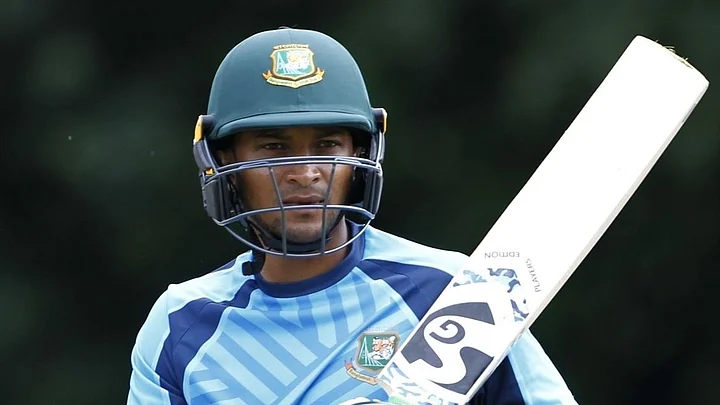Our neighbours Sri Lanka, Pakistan and Bangladesh are currently going through a transition period, and the controversies in their cricketing cultures are adding more worries to their future plans.
From the day the ICC appointed the Anti-Corruption Unit (ACU), the game of cricket has run quite smoothly. There have been exceptions including what happened to Steve Smith and David Warner after the ball-tampering scandal in 2018, and they were rightly punished after being found guilty for bringing disrepute to the game.
One could understand and maybe even excuse a newcomer who unknowingly breaks the rules laid down by ACU. But when senior players like Smith and Warner, and now Bangladesh Test and T20 captain Shakib Al Hasan, are involved in such cheap acts, then the question of whether they did it knowingly or unknowingly after playing for so many years, arises.
I am happy that Bangladesh Cricket Board had a stern view regarding Shakib not reporting corrupt approaches on multiple occasions, and that the International Cricket Council rightfully handed him a two-year ban.
But the question that remains is whether it is the ignorance of the man or there something larger at play here. Besides, such a punishment should have been imposed a bit earlier.
If you look at human nature, we see very little contentment but we see more greed. But the most worrying thing for the respective board and ICC is the involvement of such a senior player in such things. I don’t know which direction international cricket is heading in but such controversies are definitely going to hurt the credibility of the game.
If Weather’s Unsuitable, Call-Off the Game and Move On
Metro cities in India including Delhi, Mumbai, Chennai, Hyderabad and Bangalore have never had crystal clear weather. International cricket has been played at the Arun Jaitley (formerly Feroz Shah Kotla) Stadium for nine decades or perhaps even more.
Over time, the sport has seen drastic changes from its inception with the traditional 5-day Test format to one-dayers to T20 and now to the T10 format. From white clothing to colour clothing, and with the major issue of global warming, the weather pattern too has changed. With the increase in population, the number of vehicles on the road and the infrastructure has caused problems in most parts of India.
The issue of healthcare problems related to pollution was first raised by the Sri Lankan cricket team two years ago, and the visiting team even refused to play in Delhi.
We have seen cricketers wear helmets and umpires sport armguards but in that particular Test at Feroz Shah Kotla in 2017, we saw cricketers wearing masks due to the high percentage of pollution during that time of the year.
It is certainly a serious concern not only for visiting players but for all those in the stands, watching cricket under such conditions. I am sure that the Board of Control for Cricket in India (BCCI) and team management must have taken note of this, and the tournament committee discussed it as a serious issue. But tell me honestly, how can the weather be predicted two or three months in advance when a match is already agreed between two cricketing boards.
Everyday, we read in newspapers about the fog and the smog setting in and out in most of the cities. New Delhi is India’s capital, and also the residence of the Prime Minister, President, Vice President, Central Ministers and many other VIPs. The local Delhi people continue to work their way day in and out. I know it is different being in AC and playing open in the field. However, if the condition of the air is so bad, then the only way out is to cancel the game. After all, people saw so many games washed out during the recent World Cup in England. If the weather on that particular day is so unsuitable, then you just call off the game and move ahead.
(Former India cricketer Sandeep Patil played 29 Tests and 45 ODIs from January 1980 to May 1986. Patil scored 1,588 runs in Tests and 1,005 runs in ODIs. This is an opinion piece and the views expressed above are the author’s own. The Quint neither endorses nor is responsible for them.)
(At The Quint, we question everything. Play an active role in shaping our journalism by becoming a member today.)
